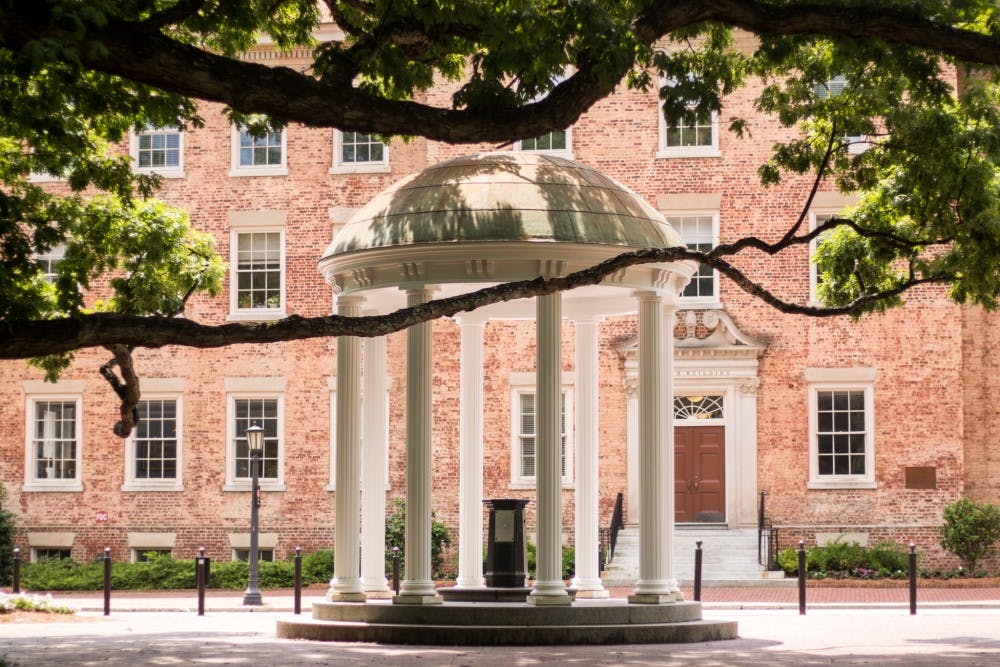For every Carolina Covenant scholar the University enrolls, it also enrolls two North Carolinian students from a middle-income background. As part of its ongoing wide-scale fundraising campaign, UNC plans to implement a new scholarship program geared toward working households in North Carolina.
The Blue Sky Scholars program was sparked by a $5 million donation from former UNC-system President Erskine Bowles, and the University hopes to raise an additional $15 million to bring the total to $20 million.
The scholarship serves to make college affordable for students who otherwise wouldn't be eligible for other aid programs like the Covenant. The Blue Sky Scholars program specifically targets middle-income North Carolinians, with the hopes that they too can have a financial aid option similar to the Covenant program.
Steve Farmer, vice provost for Enrollment and Undergraduate Admissions, said the scholarship will consist of $7,500 a year, renewable for four years. Additionally, it will include $2,500 a year in work study employment.
“If we can help you find a job in a field that's appealing to you, working while you’re an undergrad can improve academic performance,” Farmer said.
The scholarship will also grant recipients a one-time enrichment award of $2,500, which can be used to finance opportunities to enhance their Carolina experience, like internships or study abroad experiences.
Farmer said the enrichment award was integral to the scholarships mission. He said oftentimes students have to turn down potential life-changing opportunities for financial reasons: because their parents can’t afford it or they don’t want to compromise their younger siblings’ chances to attend college.
The donor whose gift made the scholarship possible, Erskine Bowles, has always had an interest in middle-income North Carolinians, Farmer said.
"(Bowles) has a long history of leadership in our state, and really understands that there are hardworking folks all across North Carolina, who get up every day to go to work — schoolteachers, first responders, firefighters, servicemen and women,” Farmer said. “The donor has always had a special place in his heart for working, middle-income families.”




